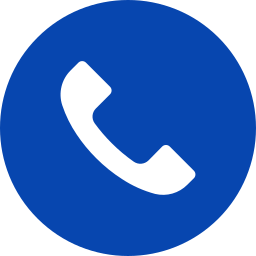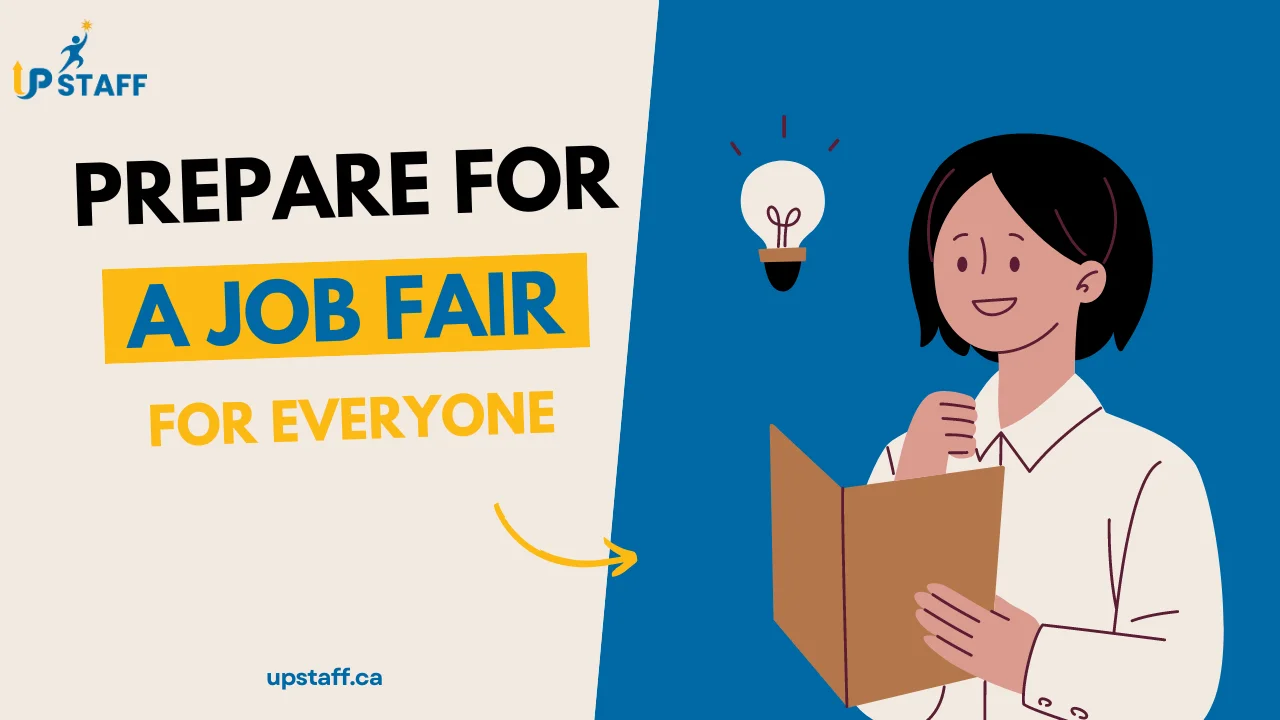Picture this: You’ve been busy looking at job ads, tweaking your resume, and practicing for interviews. Suddenly, you find out about a job fair happening nearby, packed with opportunities from different companies. Excitement kicks in, but so does a bit of nervousness. How can you make the most of this chance to meet potential employers in person?
Here’s a quick guide on how to prepare for a job fair: Research the companies attending, perfect your introduction, and dress professionally. Bring plenty of resumes, prepare thoughtful questions, and practice your networking skills.
We’ve got some easy but powerful tips to help you stand out at the job fair.
The Importance of Preparing for a Job Fair
Getting ready for a job fair is crucial because these events can be super busy and hectic. Instead of just wandering around and hoping to talk to every company, it’s smart to make a list of the ones you really want to speak with.
This way, you can plan your time better and feel more relaxed and confident when you talk to them.
Effective Tips on How to Prepare for a Job Fair
Here are some steps to get ready for a job fair:
| Sign up for the job fair in advance. |
| Keep your expectations realistic. |
| Understand what employers want. |
| Look into each company you’re interested in. |
| Print out several copies of your resume. |
| Choose the right format for your resume. |
| Think about bringing examples of your work. |
| Have a short introduction about yourself ready. |
| Write down some questions for interviews. |
| Dress appropriately for the event. |
| Make a plan for what you’ll do at the fair. |
| Think about how you’ll follow up after the fair. |
Let’s get into the details of these tips.
Sign up for the Job Fair in Advance
Job fairs might need you to sign up beforehand, usually by sending in your resume. As more job fairs move online, signing up early will probably become even more popular.
This lets employers look over job seekers before the fair and maybe decide who they want to meet there. While signing up early doesn’t mean you’ll get hired, it makes it more likely that employers will see you.
Keep Your Expectations Realistic
Keep your expectations realistic during and after the job fair. Every hiring manager is different, so companies may have different ways of talking to you. You might have a long interview, a quick chat, or something in between.
**Remember, a short talk doesn’t mean they’re not interested. Just like you’re trying to use your time well, hiring managers want to talk to lots of people.
If a hiring manager wants to do a full interview or asks you to come back soon for one, they’re probably looking to hire soon. But, even if a company seems really interested, don’t expect a job offer right away. Some companies hire people on the spot, but not all of them do.
In addition, Visit our informative blog to learn, “Can an employer reduce your salary?”
Understand What Employers Want
Even though your main goal at a job fair is to get a job, it’s good to know what companies want. Many companies there are looking to hire for entry-level positions. That means you don’t need to have lots of work experience on your resume.
So, instead of talking about your work history, talk about your soft skills. Most employers at job fairs like candidates who have the same values as the company and would fit in well with the company’s culture.
Look into Each Company You’re Interested in
Before the job fair, find out which companies will be there. Write down the ones you want to work for and learn about them.
Hiring managers want you to know a little about their company and what they do before you come to the job fair.
Print out Several Copies of Your Resume
Get ready by making and printing different versions of your resume for each company you want to talk to. If you have skills that work for different types of jobs, make separate resumes for each one. For example, if you’re interested in education, management, and sales, make resumes that show your experience in each of these areas.
When you meet with hiring managers, give them the resume that fits the job you’re interested in. To stay organized, keep your different resumes in separate folders.
Wondering, “Is accounting a good career in Canada?” Give our informative blog a thorough read to learn.
Choose the Right Format for Your Resume
There are different types of resumes, but the one that’s great for showing off your skills and education is called the multipurpose functional format. This type of resume doesn’t list your experiences in order of time like a usual resume.
Instead, it focuses on your skills, like how good you are at —
- planning projects,
- solving problems,
- staying organized,
- and managing things.
Think About Bringing Examples of Your Work
Portfolios are a great way to show off the skills you talk about on your resume or in an interview. They provide evidence of your abilities through samples of your work and professional documents. Your portfolio could be a physical binder with examples of your work or an online portfolio with electronic files.
In your portfolio, you’ll typically include —
- copies of your resumes,
- examples of your best work,
- and a list of people who can vouch for you.
Even though job fair interviews are usually short, you might get a chance to talk about your portfolio with the company’s representative, either during a quick break or in a second interview right there.
Have a Short Introduction About Yourself Ready
It’s important to have a short elevator pitch ready. An elevator pitch is a quick summary of your experience, skills, and background. Practice it so you can say it confidently and smoothly. You can also add things like your goals, interests, and achievements.
Try reading your elevator pitch out loud to yourself to catch any mistakes or extra details. You can also ask your family or friends to listen to you for about 30 seconds and give you feedback. The more you practice, the easier it’ll be to say.
While it’s good to plan and practice your elevator pitch, try not to sound too rehearsed. Memorize the main points, but keep it natural and adapt it to each person you talk to. For example, if you’re talking to someone new, keep it simple and focus on your background.
You can check out A Simple Way to Introduce Yourself by Harvard Business Review.
Write Down Some Questions for Interviews
A job interview is like a conversation. They ask you questions to see if you’re right for the job, and it’s your chance to see if the job is right for you too. Asking questions during the interview shows the employer you’re interested in their company.
Make sure to ask smart questions and avoid talking about things like pay or benefits until later in the interview process.
So, what questions to ask at a job fair? Here are some good questions you can ask:
- What will I do every day in this job?
- What kind of person does well in this job?
- What’s the company’s culture like?
- What do you expect from me in the first month or two?
- How will you know if I’m doing a good job?
- What do you enjoy most about working here?
Dress Appropriately for the Event

On the day of the job fair, wear the right clothes. A good rule is to dress for the job you are applying for. But it’s better to be too dressed up than too casual.
Wear professional clothes like conservative business attire to make a good first impression.
Make a Plan for What You’ll Do at the Fair
Before the job fair, find out where each company’s booth is located. Start by talking to one or two of the companies that are not your top priority to practice. Then, talk to your high-priority companies.
It’s a good idea to talk to your top choices early in the day because they might be more available then. If you’re a good candidate, they might use you to compare with other candidates.
Talking to them early also makes sure you won’t miss them later. But if you manage your time well, you won’t miss any of your targets.
Here are some other to-do lists for the day:
- On the day of the job fair, aim to arrive early.
- Introduce yourself with a smile and a strong handshake.
- Write down important information, like what to do next and who else you can talk to in the company.
- Ask for a business card from the company representative.
- Talk to other job seekers to share info about companies and job leads. Get their contact info if you can.
- Also, talk to any professional groups at the fair for more networking chances in the future.
Besides, check out our informative blog to learn, “How can social media affect job opportunities?”
Think About How You’ll Follow up After the Fair
After the job fair, it’s important to reach out to the company’s representative. Send a quick email to thank them for their time and show your interest in the company.
You can also call them in the evening and leave a voicemail thanking them for meeting with you that day.
Tips for Attending Virtual Career Fairs
Attending a virtual career fair needs the same steps as an in-person job fair, but there are a few more things to do to make it work well.
Use Good Devices
- Make sure your computer or tablet is new enough to work well and can handle the software for virtual meetings. If it’s old, think about getting a newer one to avoid problems during chats or video meetings.
- Try not to use your phone unless you really have to. It might not have a good connection or screen size for video chats.
Have a Good Internet Connection
- Check your Wi-Fi at home or wherever you are to make sure it’s fast and clear.
Know How to Use the Tools
- Download the right software before the fair and learn how to use it. You don’t want to waste time trying to figure it out during the fair. If you’re not sure, ask someone to help you learn a few days before.
Set up a Good Place
- Make sure your background looks professional, and there’s not too much noise or stuff around. This helps you focus and make a good impression if you have a video interview.
Dress Nicely
- Dress like you would for a real interview, from head to toe. It helps you feel professional and ready for a video interview if it happens.
After the virtual fair, do the same things you would after any other interview.
So, check out our insightful blog to learn why career opportunities are important.
Contact Upstaff if You’re Searching for a New Job
Looking for a job in Toronto, ON? Upstaff can help! We’ve already helped over 10,000 job seekers find great jobs, and we can do the same for you.
We have lots of positions available in different industries like construction, healthcare, and more. Whether you need a full-time, part-time, or seasonal job, we have options for you.
Our team will understand your needs and find the right job for you.
Start your job search with Upstaff today! Apply now for a new job opportunity.
Wrapping Up
In the end, getting ready for a job fair is really important to leave a good impression on employers. If you follow the tips in this guide — “How to Prepare for a Job Fair,” you can go to the event feeling confident and increase your chances of getting a job.
Remember, being well-prepared is crucial in a tough job market. Whether you’re new to the workforce or have been working for a while, use these tips to make sure you’re ready for the job fair.
FAQs
What is a job fair?
A job fair is a large event where employers gather to meet potential candidates. It’s a chance to network, learn about different companies, and potentially land an interview for your dream job.
How to be successful at a job fair?
Research companies beforehand, practice your pitch, and follow up after the fair to leave a lasting impression.
Is it worth attending a job fair if I’m not actively looking?
Absolutely! Job fairs are a goldmine for networking. You can connect with professionals from various companies, learn about industry trends, and potentially discover new career paths you hadn’t considered.
What if I don’t have a lot of experience?
Job fairs are a great way to get your foot in the door, even with limited experience. Focus on transferable skills like communication, teamwork, and problem-solving. Highlight volunteer work or relevant coursework to showcase your potential.
I’m introverted – can I still succeed at a job fair?
Yes! While job fairs can feel overwhelming for introverts, you can still shine. Prepare talking points beforehand, take breaks to recharge, and focus on quality interactions over quantity.






One response to “Tips on How to Prepare for a Job Fair”
[…] how to prepare for a job fair? Visit our recent blog post on this […]